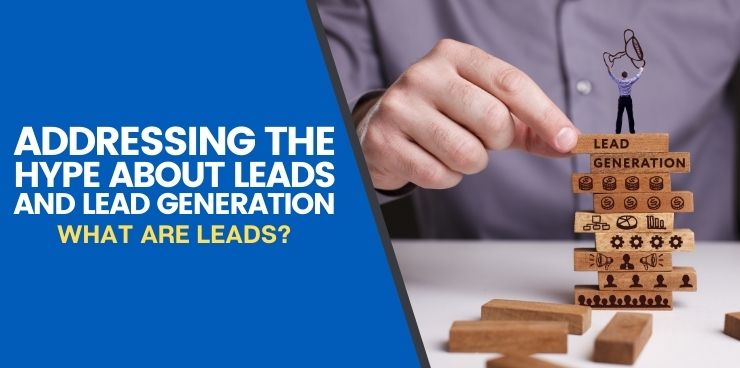We have a few examples to start you out with today.
One: Where does a fish spend their time? Do they hang out at a bar? No. Despite the popular phrase “drinking like a fish,” it’s a misnomer when it comes to actual seafood. They live in bodies of water. If they were to frequent their favorite bar from 5 p.m. to 7 p.m., they wouldn’t survive.
Two: Where does an up-and-coming author go to network? If they’re doing it right, they would go to publishing parties and network at their fellow writers’ book-signing events. They would never go to a rock concert and try to scream over epic guitar riffs to pitch their new novel.
Three: What about the owner of a small business? Say that their business sells home decor. Would they fly out to Paris Fashion Week every year to build professional relationships and chain restaurants to pitch to potential customers? Well, they can. But they won’t have much success. Plus, we hear that airfare and fashion show tickets are pretty pricey these days.
Now, think about your own situation. What does your business sell? What products or services do you focus on? Who buys them? You have to know the right information in order to prioritize lead generation. And like the fish at the bar, if you are hanging out in the wrong places to promote your brand, your business can’t survive either.
But hold up: What are leads?
 What is a Lead in a Business?
What is a Lead in a Business?
Do you have a startup in the works or a small business that just opened its doors to your community? First of all, welcome to the sales game!
But it’s time to get down to business. One of the first things you have to take into consideration is your lead generation campaign. You may need to round up local leads, small business leads or large-scale online leads.
And while researching for business best practices, you may have overheard some chatter about the difference between a business lead and a marketing lead. What about those sales leads? Again, what are leads? There are a lot of moving parts to lead gen. Let’s talk about a lead in business first.
In general terms, a lead, or business lead, is someone who could turn into a paying customer in the future. But the definition changes from organization to organization. For some, they have already gone through the steps to determine if this person is a high-quality prospective customer. For others, a lead is any variety of contact in their sales structure.
And as with every business professional, you want to convert as many leads as possible into long-standing customers. This is the basis of business lead generation. You want a high conversion rate. But this is where some problems may arise. You and your team have to qualify leads to make sure you are not prioritizing low-quality leads who will not convert.
So what are leads? Now you know the basics that allow you to answer that very question. But let’s get more in-depth below.
What is a Lead in Marketing?
A marketing lead comes your way when your brand, its products, or its services spark their interest. They are a potential customer who is well on their way to becoming a paying customer. Your marketing team works hard to put out content that is of value to your target audience. They come up with relevant offers that move them down the sales funnel until they make a purchase.
Your marketing department is there to generate these leads through lead generation marketing. Because of their marketing efforts, they initiate conversations about your brand for your leads and existing customers. This is like a “Phase One” to your strategy to get more customers.
But you cannot convert these leads if your marketing and sales teams do not work together. Yes, your marketers have to use various channels to make them aware of all you have to offer. But what’s the point if those leads don’t convert?
So a marketing lead expresses interest in your brand in some way, shape, or form. This is where your sales leads come in after that initial interest and interaction.
What is a Sales Lead?
Let’s look at sales leads to address your pending question of “what are leads?”
You have to qualify your leads to see how likely they are to become a full-on customer. You do this by analyzing buyer data. And like we mentioned, your sales and marketing efforts must align with one another to make sure you are not wasting your precious time with low-quality leads.
Where do they fit into your pipeline? How will you communicate with them? What will your marketing efforts look like to do so?
You want your sales leads to meet the criteria of your ideal buyer profile. They have to show interest in your company or have shown interest in the past.
This interest could have presented itself in any number of ways. Maybe they read your blog post but did not indicate that they wanted to buy your product or service. Though not a sure thing, they still count as a sales lead. On the other hand, maybe they filled out a “Contact Us” form on your website or requested more information from your team. These people are sales leads too.
The details of what type of lead they are, and how high or low their intent to buy, shape how you have to approach them. How much attention you should pay them and the effort you should put into your strategy for them depends on the type of lead they are.
Types of Sales Leads
Seven individual types comprise the holistic term “sales leads.”
You now know how to answer the question of “what are leads?” But there is still more to know. To turn your leads into prospects, and prospects into customers, explore those seven subcategories below.
These types of leads also overlap. You can have a combination of an MQL and a warm lead, for example.
Cold Leads
A cold lead checks all the boxes for your ideal buyer profile. At the same time, they have not told you in certain terms that they want to buy what you are selling.
You may have come across them through your lead generation software or a few simple searches on your end. Cold leads matter. They serve as an untapped source of revenue. But they don’t know anything specific about your brand yet.
It may sound intimidating to have to convert these leads. Since you will come across a lot of them, though, you have to know how to convert them anyway.
Get comfortable with cold calls and cold emails. Identify your cold leads’ pain points. Then, talk to them about how you can solve their problems with your product or service. Focus on them as the main character of the narrative you are spinning. And above all, be persistent and nurture them along their journey.
Warm Leads
Warm leads know who you are. They have a rough or even strong impression of your brand and what you bring to the table. They may have talked to you in the past. Or, they could have followed your social media pages and blog content for some time now.
Here, you need to first identify why they have not bought from your business before. Was it an issue of money? The wrong time for them to act?
And when you talk to them this time, remind them of their last experience with you. Personalize it. Address their individual circumstances and help them arrive at the decision that now is the perfect time to buy.
Hot Leads
Hot leads are the people who have expressed direct interest in learning more about your brand. They may have filled out a form saying as much. They also could have called or sent you an email asking for more details.
You need to engage them right away. Time is always of the essence of sales, but hot leads take the cake for time-sensitive communication efforts. A rule of thumb in sales is to reach back out to them within 20 minutes after finding out they want to know more. If you don’t, rest assured that they will head to your competition for solutions.
Information Qualified Leads (IQL)
Information Qualified Leads (IQL) fit the bill for your ideal buyer. They also offered up their contact information to your team. But they have not yet told you that your particular solution interests them.
They may have downloaded information that you provide on your site, like a useful pdf or e-book. When you reach out to them, ask about the information they used to see if it helped them. You will get to see if they are even able to buy from you at all.
This will also help you to define their specific needs and go from there.
Marketing Qualified Leads (MQL)
A Marketing Qualified Lead (MQL) levels up from an IQL. They are in the process of researching the ways your product or service can benefit them and fulfill their needs as a consumer.
Whether you hand off your MQL to a sales rep or keep them within your marketing department depends on your business.
Invite them to an introductory conversation via phone call, email, or chat. Then you can find out if they are ready to step up their working relationship with your brand. Again, remain persistent in your communication efforts with your MQL.
Sales-Ready/Accepted Leads (SRL)
Your sales-ready lead (SRL) is one who you know you can hand over to your sales team from your marketing team.
To know if they are ready is contingent upon your sales process. It is unique to what you consider “sales-ready,” or how warm your lead is at this step.
 Sales-Qualified Leads (SQL)
Sales-Qualified Leads (SQL)
Your sales-qualified lead (SQL) should be the most ready-to-buy out of all your sales leads. You and they both know it is time for them to chat with someone in your sales department.
An SQL could serve as the decision-maker, or potential client, from a company that wants to do business with your company. These are hot leads. You need to reach out to them as soon as possible with more of the information they are requesting.
Then, you can walk with them throughout the sales process with a presentation or face-to-face call.
Conclusion
At Selling Revolution, we are who you come to when you have pressing questions that stand in the way of your business success and long-term growth.
What are leads?
How do you get more of them?
How do you ensure they are of the highest quality?
How do you promote a selling culture of top talent who will close your sales every time?
With us, of course. Our selling experts have the secret to your organizational success. But as the old nursery rhyme goes, secrets are no fun. We want to share it with you. As with all impending success, time is money. Especially in sales.
So what time works best for you to explore our customized solutions for your company? When are you ready to hear the secret behind long-term growth?
Click here to book a call with Selling Revolution today.


 What is a Lead in a Business?
What is a Lead in a Business?
 Sales-Qualified Leads (SQL)
Sales-Qualified Leads (SQL)